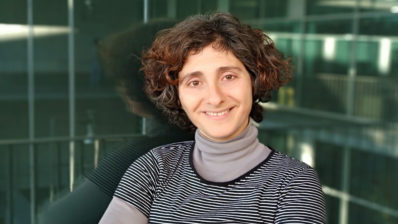Ben Lehner, a researcher at the Centre for Genomic Regulation (CRG), has been one of 59 new members elected by the Royal Society, the most prestigious scientific academy in the UK and one of the most important worldwide. With more than 360 years of history, the academy is the oldest continuously operating academy in the world, with 1,600 of the world’s most eminent scientists spread across the globe.
Members of the Royal Society are classified as either ‘Fellows‘ (if they are from the UK and work there) or ‘Foreign Members‘ (if they are foreigners or work outside the UK). Lehner – who is a British citizen and currently combines his position at the CRG with leading a group at the Wellcome Sanger Institute in Cambridge – joins the list of Fellows. This includes figures such as Isaac Newton, Albert Einstein and Charles Darwin, and more recently Jennifer Doudna, one of the discoverers of CRISPR and a recent Nobel laureate.
The list of Foreign Members in Spain includes Ginés Morata from the Autonomous University of Madrid, Nobel Prize winner Severo Ochoa, as well as neuroscientist Santiago Ramón y Cajal.
“Being recognised by the most prestigious scientific academy in the world vindicates the world-class research we do in Barcelona”
Ben Lehner
Lehner has been at the PRBB for almost 20 years. In these years, his CRG lab has touched on diverse topics such as the development of a technology to discover the ‘hidden’ sites of proteins that could be used to develop better drugs; how the interaction between different mutations is involved in whether they cause disease or not; or a study on the toxicity of protein aggregates in Amyotrophic Lateral Sclerosis (ALS). For these studies, the team led by the still young researcher has combined work with the worm C. elegans as a model organism, as well as experimental techniques and theoretical analyses of big data and computational biology.
Lehner, who has also recently been one of the driving forces behind the creation of the Barcelona Collaboratorium for Modeling and Predictive Biology, adds this to the long list of awards achieved in recent years. Congratulations!







